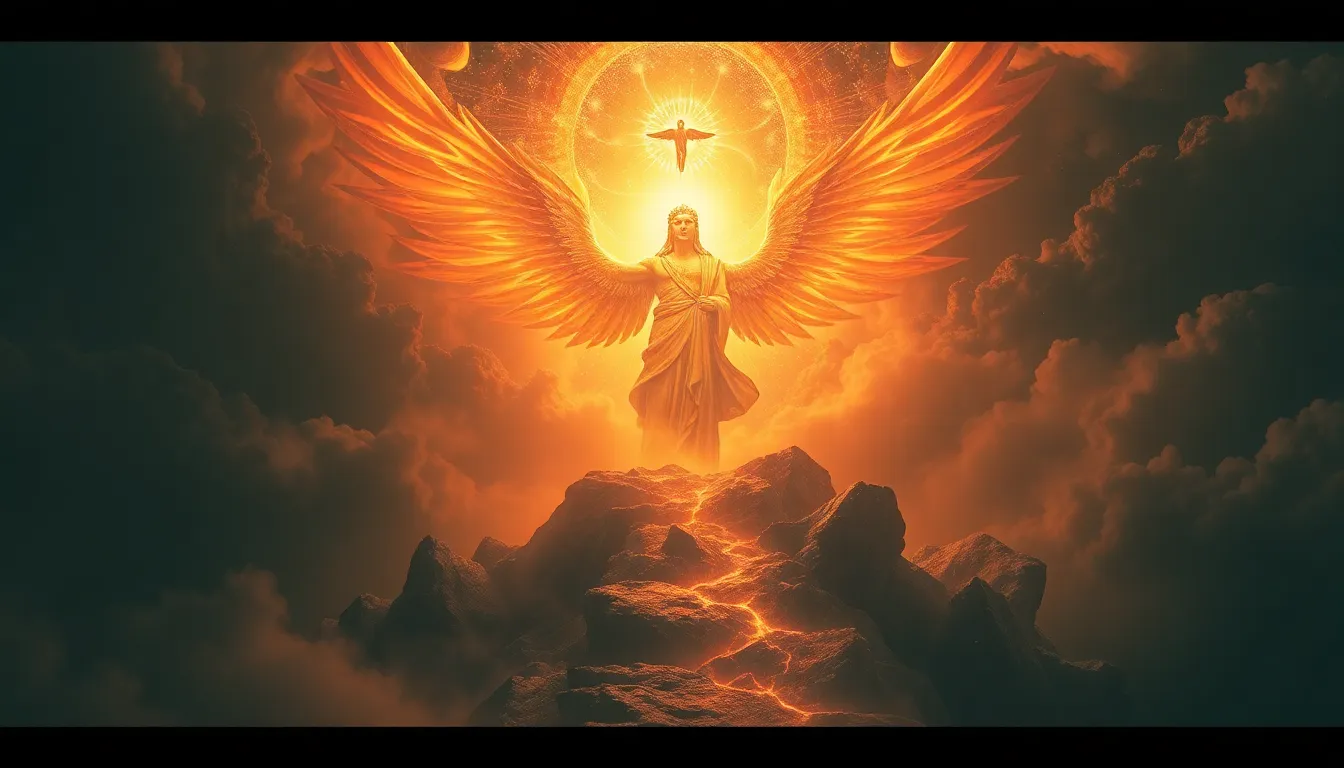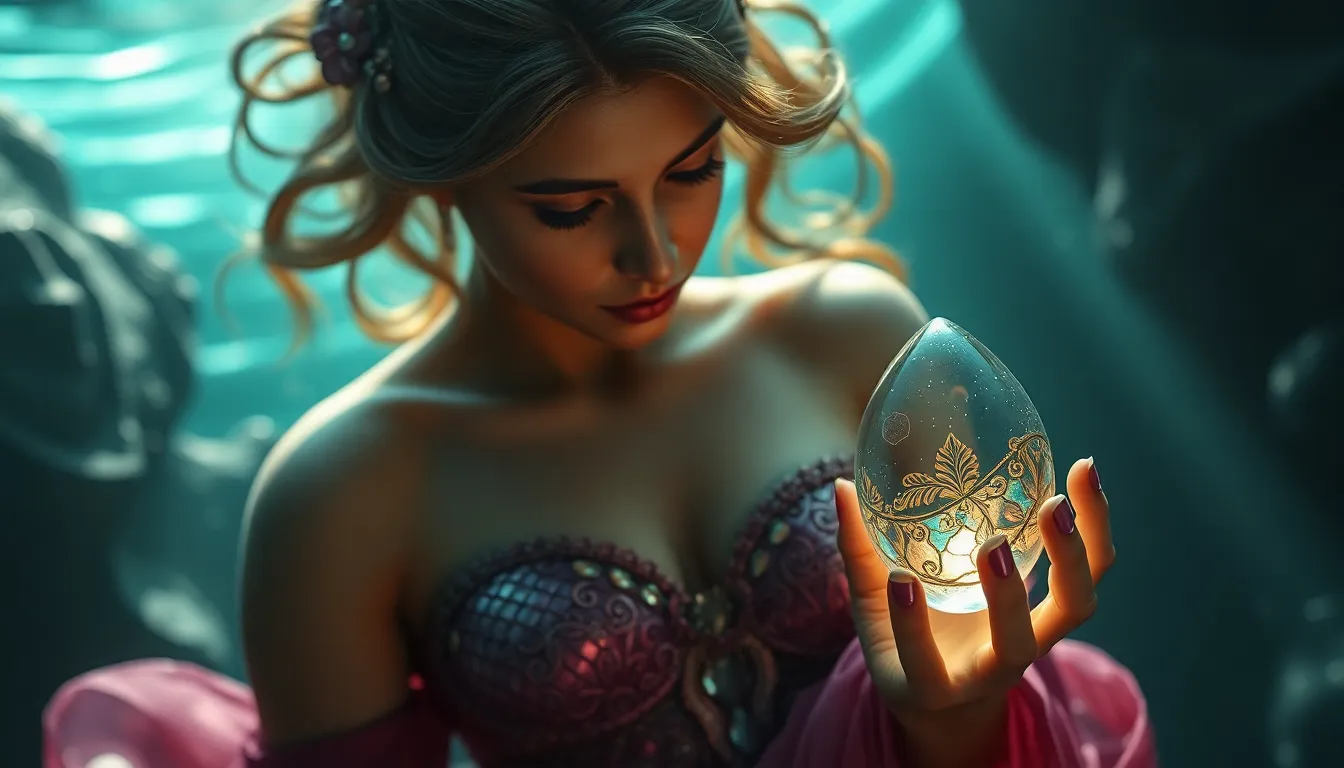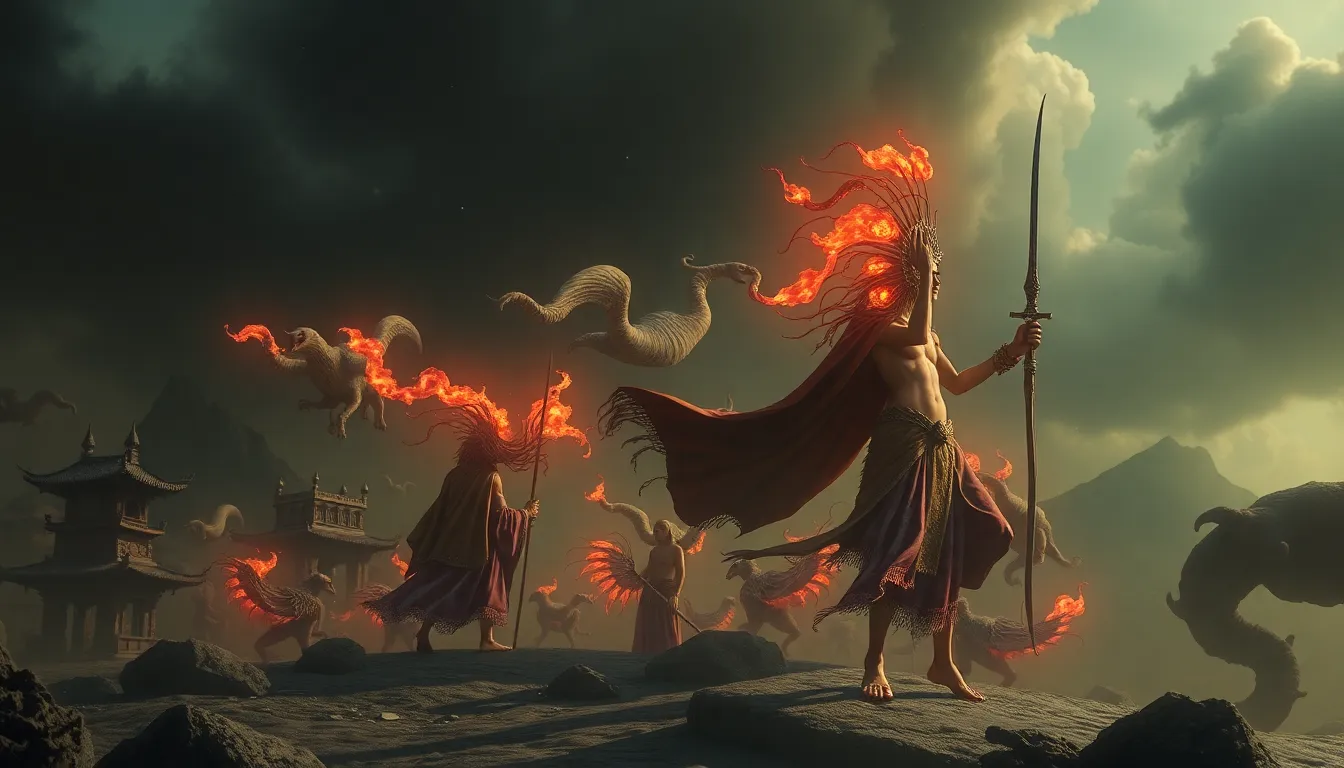The Divine Imagination: How Myths Inspire Our Understanding of Creation
Introduction: The Interplay of Myth and Creation
Myths are foundational narratives that explore the human experience, serving as vehicles for cultural expression and understanding. They encapsulate the beliefs, values, and traditions of societies across time and geography. At their core, myths offer explanations for the origins of the world and humanity, intertwining with the concept of creation in profound ways.
The significance of myth in human culture lies in its ability to provide meaning and context to our existence. Creation myths, in particular, are pivotal as they narrate the birth of the universe and humanity, reflecting the questions and curiosities that have persisted throughout human history.
The Role of Myths in Human Experience
Myths are not merely stories; they are integral to cultural identity and shared values. They shape the way communities perceive themselves and their place in the world. Various cultures have their unique myths that define their ethos and moral compass. For example:
- In many Indigenous cultures, creation myths emphasize harmony with nature.
- Eastern philosophies often highlight interconnectedness in their creation narratives.
- Western traditions frequently focus on a singular divine creator.
Despite their diversity, creation myths share universal themes, such as chaos preceding order, the emergence of life from non-existence, and the relationship between humanity and the divine.
Understanding Creation through Mythological Narratives
Key creation myths provide insight into how different cultures perceive the universe’s origins. For instance:
- Genesis: The Judeo-Christian creation story describes God creating the world in six days and resting on the seventh, emphasizing divine order and purpose.
- Hindu Creation Narrative: In Hinduism, the universe undergoes cycles of creation and destruction, with Brahma as the creator, reflecting the cyclical nature of existence.
- Enuma Elish: This Babylonian myth tells of the god Marduk defeating primordial chaos to create the world, symbolizing the triumph of order over chaos.
These narratives reveal common themes such as the struggle against chaos, the significance of a creator figure, and the establishment of order from disorder.
The Archetypes of Creation: Common Elements Across Myths
Across various cultures, certain archetypes emerge in creation myths that provide insight into human understanding of existence. Notable archetypes include:
- The Creator: A divine figure responsible for bringing the universe into being.
- Chaos: The state of nothingness or disorder that precedes creation.
- The Cosmic Egg: A symbolic representation of potential and the origin of life.
These archetypes not only influence creation narratives but also resonate with human experiences, reflecting our quest for understanding and meaning.
Myth as a Reflection of Human Imagination and Experience
Myths are windows into the human psyche, reflecting our emotions, desires, and fears. They capture the essence of human experience, often addressing existential questions about life, death, and purpose. Creation myths, in particular, resonate on psychological levels:
- They provide frameworks for understanding our origins.
- They offer solace in times of uncertainty, presenting a narrative of order and purpose.
- They articulate the hopes and fears surrounding existence and the unknown.
Through these narratives, we can explore our place in the universe, making sense of our existence and the challenges we face.
The Divine Imagination: The Role of Deities in Creation Myths
Deities play crucial roles in many creation myths, embodying various characteristics and attributes that shape the narratives. For instance:
- Yahweh (Judaism): A singular, omnipotent creator who establishes moral order.
- Brahma (Hinduism): The creator god who embodies the creative aspect of the divine.
- Ptah (Egyptian): A craftsman god who brings the world into existence through thought and speech.
These deities not only create but also reflect the values and beliefs of the cultures that revere them. Their characteristics often align with the cultural identity and ethical frameworks of their respective societies.
Modern Interpretations of Ancient Myths
Contemporary thinkers and artists continue to reinterpret ancient creation myths, exploring their relevance in today’s world. Modern interpretations can be found in:
- Literature: Authors weave mythological themes into narratives that address contemporary issues.
- Film: Movies often draw on mythological elements to explore themes of heroism, creation, and the human condition.
- Art: Visual artists utilize mythological symbols to express complex ideas about existence and identity.
These modern adaptations highlight the enduring significance of myths, allowing them to resonate with new generations while addressing current societal challenges.
Mythology and Science: Bridging the Gap
The relationship between scientific theories of creation, such as the Big Bang, and mythological narratives is a fascinating area of exploration. While science provides empirical explanations of the universe’s origins, myths offer symbolic frameworks that address existential questions:
- Myths can coexist with scientific understanding, offering insight into human experiences surrounding creation.
- Both realms seek answers to the same fundamental questions, albeit in different languages—scientific and poetic.
This intersection encourages a dialogue between scientific inquiry and mythological interpretation, enriching our understanding of existence.
The Impact of Myths on Personal and Collective Belief Systems
Creation myths significantly influence personal identity and collective belief systems. They shape how individuals and communities perceive themselves and their values:
- Myths provide a sense of belonging and cultural continuity.
- They inform ethical frameworks and moral guidelines within communities.
- They foster a shared understanding of origins, enriching cultural narratives.
Through these narratives, individuals can navigate their identities, forging connections with their heritage and the broader human experience.
Conclusion: The Enduring Power of Myths in Understanding Creation
Myths hold an enduring power in helping us navigate existential questions about our origins and existence. They provide a rich tapestry of narratives that foster a deeper understanding of humanity and the universe. As we reflect on these mythological narratives, we are reminded of their importance in shaping our cultural identities, belief systems, and understanding of creation itself.
In a rapidly changing world, the richness of myths continues to inspire and challenge us, inviting us to explore the depths of our imagination and the mysteries of our existence.



